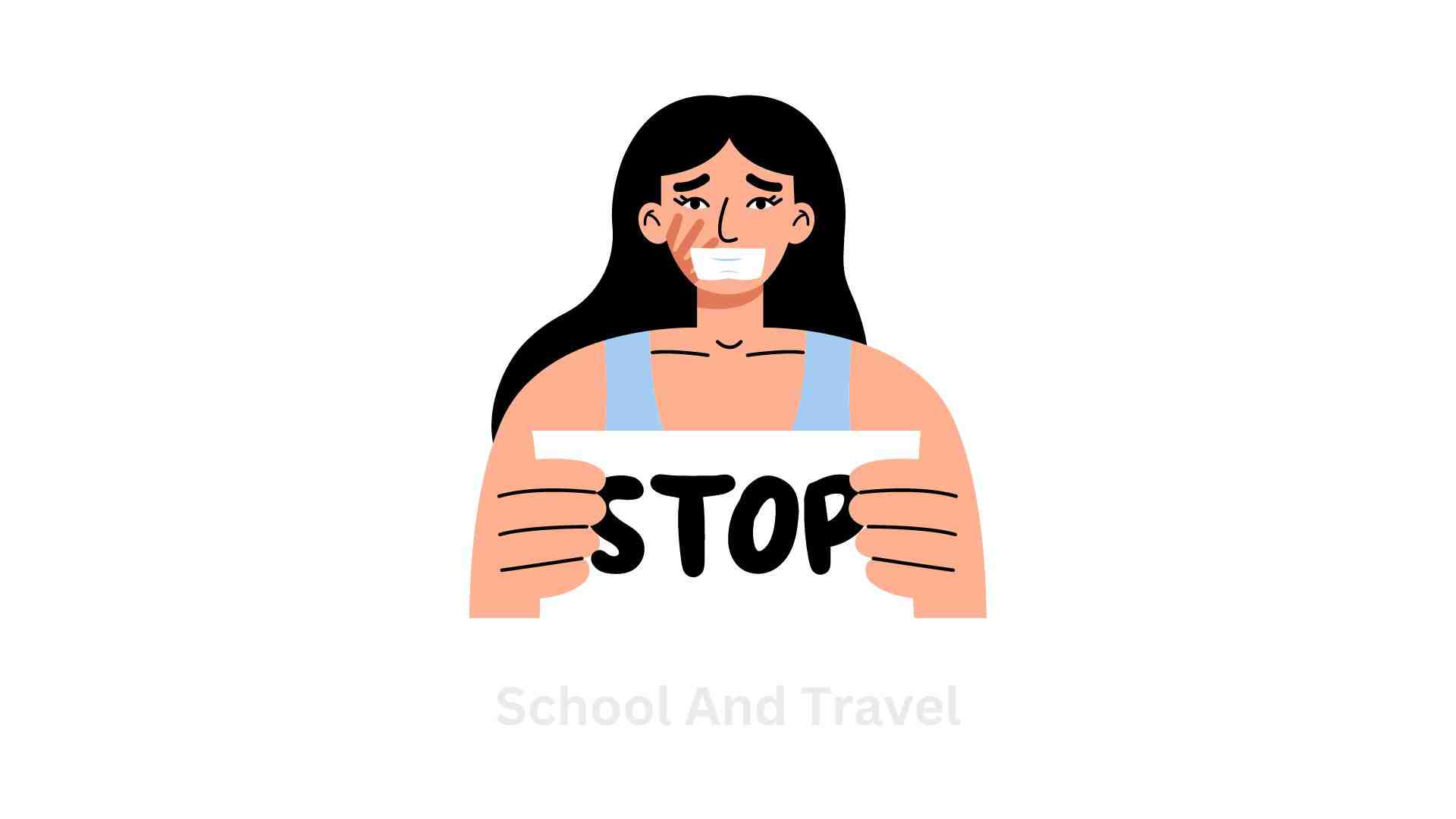In domestic violence cases, individuals who have experienced abuse may face difficult legal action decisions.
There are circumstances where the victim may wish to drop charges for various reasons, such as seeking reconciliation or personal considerations.
However, navigating the legal process can be daunting, especially when formalizing the decision through a letter.
By understanding the necessary elements and considerations, individuals will be better equipped to communicate their intentions effectively and responsibly within the legal framework.
Hence, we will provide a comprehensive step-by-step guide on how to write a letter to drop domestic violence charges.
Understanding Domestic Violence Charges
Domestic violence refers to abusive behavior that occurs within intimate relationships or households. It encompasses various forms of abuse, including:
1. Physical Abuse
This involves physical acts such as hitting, punching, slapping, kicking, or other bodily harm intended to cause pain or injury.
2. Emotional Abuse
Emotional abuse involves actions that undermine a person’s self-worth, manipulate their emotions, and control their behavior. It can include verbal insults, humiliation, threats, intimidation, and isolation.
3. Sexual Abuse
Sexual abuse refers to any non-consensual sexual activity or coercion within an intimate relationship, including rape, sexual assault, or forced participation in sexual acts.
4. Financial Abuse
Financial abuse involves controlling or exploiting a partner’s financial resources, restricting their access to money, or using money to manipulate and control.
Legal Process for Domestic Violence Charges
The legal process surrounding domestic violence charges varies by jurisdiction, but it generally involves the following steps:
1. Reporting
When a victim or witness reports a domestic violence incident to the police, it initiates a crucial process involving law enforcement authorities.
In response, the authorities will investigate to gather relevant information and evidence about the incident.
2. Arrest
If the police determine sufficient evidence, they may make an arrest. The alleged abuser may be taken into custody or issued a summons to appear in court.
3. Charges
Following the arrest, the prosecutor reviews the evidence and decides whether to file charges against the alleged abuser.
The specific charges depend on the jurisdiction and the severity of the offense.
4. Protection Orders
In many cases, the victim can seek a protection order, also known as a restraining order or an order of protection.
This legal document helps safeguard the victim from further abuse and may include provisions regarding contact or proximity.
5. Court Proceedings
If charges are filed, the accused individual will go through the court process, which includes arraignment, pre-trial hearings, trial (if applicable), and sentencing.
Potential penalties for domestic violence convictions can vary significantly based on the jurisdiction, the severity of the offense, and the offender’s criminal history.
Penalties may include fines, probation, mandatory counseling or therapy, community service, restraining orders, or incarceration.
Guidelines for writing a letter to drop domestic violence charges
Remember to maintain a calm and respectful tone throughout the letter, avoiding accusations or confrontational language.
Focus on expressing your thoughts, feelings, and desires while respecting the rights and well-being of all parties involved.
Here are some guidelines for writing a letter to drop domestic violence charges in a compassionate and informative manner:
1. Introduction
In the opening paragraph, clearly state your purpose for writing the letter.
Express your gratitude for the opportunity to communicate your thoughts and intentions regarding the domestic violence charges.
2. Personal Information
Provide your full name, address, and contact information at the beginning of the letter.
This ensures the recipient can quickly identify you and facilitates any necessary communication.
3. Acknowledge the Seriousness
Acknowledge the seriousness of the situation and demonstrate your understanding of the impact of domestic violence.
Use empathetic language to convey your genuine concern for all parties’ well-being.
4. Explain Your Decision
Clearly state your decision to drop the domestic violence charges. Explain your reasons for this decision respectfully and honestly.
Emphasize that the decision is voluntary and made after careful consideration.
5. Describe Personal Growth and Progress
Share any personal growth, counseling, or therapy you have undergone since the incident.
Highlight any positive changes you have made, such as seeking support networks, attending workshops, or engaging in self-reflection.
This can help demonstrate your commitment to personal development and a violence-free future.
6. Express Empathy and Forgiveness
Express empathy and understanding for the circumstances of the accused. If applicable, express your willingness to forgive and move forward positively.
This helps create a compassionate tone and promotes the possibility of healing and reconciliation.
7. Emphasize Personal Safety
Reassure the recipient that your decision to drop the charges does not compromise your safety or well-being.
If relevant, mention any steps you have taken to ensure your protection, such as obtaining a restraining order, seeking counseling, or relocating.
8. Request Confirmation
Politely request written confirmation from the recipient acknowledging the withdrawal of the charges.
This confirmation can serve as legal documentation and help ensure the charges are appropriately dropped.
9. Closing
End the letter with a courteous closing, such as “Sincerely” or “Best regards.” Sign your full name and date the letter.
Things To Consider Before Dropping Charges of Domestic Violence
You may be going through a tough time, and deciding to drop domestic violence charges is not easy.
You need to take a moment to reflect on your situation and consider a few critical factors before making a decision:
1. Self-reflection
First and foremost, take some time for self-reflection. It’s crucial to understand the reasons behind your desire to drop the charges.
Conflicting emotions and thoughts in such a complex and challenging situation are natural.
Ask yourself why you’re considering dropping the charges. Are you feeling fearful or intimidated by your abuser?
Do you still have an emotional attachment to them? Are you financially dependent on them?
Recognize that these factors can heavily influence your decision-making process.
2. Safety
Your safety and well-being should be your top priority. Assess the level of risk involved in your situation.
Take a moment to evaluate the history of violence and any potential threats posed by your abuser.
Consider their access to weapons and the presence of any restraining orders or protective orders.
If you’re unsure about the level of danger, seek guidance from professionals specializing in domestic violence cases.
It is strongly recommended to seek support from a domestic violence counselor or consult with an attorney who specializes in domestic violence cases.
3. Strong support
It’s essential to have a strong support network during this challenging time.
Surround yourself with people who care about you and can offer emotional and practical help.
Your friends, family, counselors, or support groups can provide the support and encouragement you need as you navigate this decision.
Lean on them for guidance and advice. If you have children, their safety is of utmost importance. Consider the potential impact on their well-being when deciding to drop charges.
Consult with professionals who can guide safeguarding their interests. Remember, their safety and security matter just as much as yours.
Should I Drop Domestic Violence Charges?
The decision to drop domestic violence charges is deeply personal, and only you can make it.
Dropping domestic violence charges can have significant consequences, and being fully aware of them is crucial.
By dropping the charges, you might unintentionally reinforce the abuser’s belief that they can continue their abusive behavior without facing the consequences.
This can lead to an escalation of violence and put you at additional risk.
By continuing with legal proceedings, you can access legal protections such as restraining orders or supervised visitation arrangements, which can contribute to your safety and well-being.
By pursuing charges, you also contribute to holding the abuser accountable and helping combat domestic violence for yourself and other potential victims.
Remember, take the time to consider your options, consult with professionals who can guide you, and prioritize your safety and well-being.
Format For A Letter To Drop Domestic Violence Charges
While victims can express their desire not to proceed with charges, the final decision typically rests with the prosecutor. Here’s a simple format for a letter expressing this desire:
[Your Name]
[Your Address]
[City, State, Zip Code]
[Date]
[Prosecutor’s Name]
[Their Title, e.g., District Attorney]
[Address of the Prosecutor’s Office]
[City, State, Zip Code]
Re: Dropping Charges against [Accused’s Full Name], Case Number: [XXXXXX]
Dear [Prosecutor’s Name],
I am writing formally expressing my wish to drop the domestic violence charges against [Accused’s Full Name]. I understand the severity and implications of domestic violence, but I believe that in this specific instance, it is in the best interest of all parties involved to reconsider the charges.
[Here, you can provide reasons or explain your circumstances, but remember to be concise. For example: “I believe the incident was a one-time occurrence and we have since sought counseling.”]
I understand that the decision to proceed with or drop the charges is ultimately in your hands, but I kindly request you consider my perspective. I will attend any required meetings or proceedings to discuss this matter further.
Thank you for taking the time to read and consider my letter. I appreciate your understanding and discretion in this sensitive matter.
Sincerely,
[Your Full Name]
[Your Contact Number]
Note: If you’re considering dropping charges or are involved in any legal matter, seeking advice from a legal professional or advocate who can guide you based on your unique situation is essential.
Frequently Asked Questions (FAQs) on How to write a letter to drop domestic violence charges
It depends on the jurisdiction and specific circumstances of your case. The prosecution may sometimes proceed with the charges even if you request to drop them. It’s essential to consult with an attorney who can provide guidance based on the laws and procedures in your jurisdiction.
Dropping charges can have various consequences. It may give the abuser the impression that their behavior is acceptable, potentially leading to an escalation of violence. Dropping charges could also impact any legal protections you may have, such as restraining orders. It’s crucial to consider these potential repercussions before making a decision.
Dropping charges doesn’t necessarily guarantee your safety, especially if there is a history of violence or ongoing threats. Developing a safety plan and seeking support from professionals who can help you navigate this process is essential. Contact local domestic violence organizations, counselors, or law enforcement for assistance in creating a safety plan tailored to your situation.
In some cases, once charges have been filed, it may not be solely within your control to drop them. The prosecutor’s office generally decides to proceed with or dismiss charges. However, expressing your wishes to the prosecutor can still be influential. Consult with an attorney to understand the specific procedures in your jurisdiction.
Conclusion
Writing a letter to drop domestic violence charges is complex and sensitive.
It requires careful consideration of legal implications and all parties’ well-being.
If you find yourself in this situation, it is crucial to seek professional legal advice to understand the potential consequences and explore available options fully.
Remember, the decision to drop charges should prioritize your safety and that of others involved.
Awesome one; I hope this article answers your question.
Editor’s Recommendations:
- Ethel Hayes Destigmatization Of Mental Health Scholarship
- Sweet and Simple Scholarship (Requirements, FAQs)
- Vegetarian Scholarship (Requirement, Deadline, FAQs)
- Can I Reuse Essays for Scholarships? (Ideas, FAQs, Plagiarism)
- John and Abigail Adams Scholarship 2022-2024 (Eligibility, Deadline)
If you find this article good, please share it with a friend.






